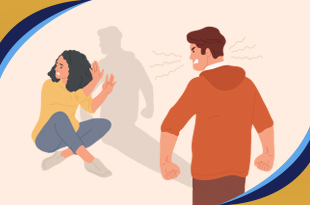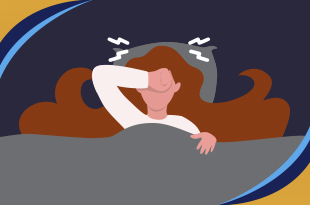We all have had instances in life where we worried about meeting new people or being close to them. Like in school, you would get a heavy feeling about meeting the new students when going to a new class or section. But when this type of feeling gets out of hand and is literally affecting your daily life then it is time to seek social anxiety disorder treatment before it’s too late. In addition to that, we’ll also discuss social anxiety treatment goals and how to reach them with Orange Coast Psychiatry’s experts.
Defining Social Anxiety Disorder
Also called social phobia, it is a common mental health disorder that affects up to 7% of adults in the US, annually. SAD is characterized by an extreme fear of social situations and social gatherings, from being on a stage in front of an audience to attending a party. Affected individuals fear they will be scrutinized and humiliated by other people. This can cause intense distress and can keep them from doing things they want to do.
Read More: Can Anxiety Disorder Cause High Blood Pressure? Insights About The Connection
Symptoms of Social Anxiety Disorder
While the main symptom is the extreme fear of being scrutinized or embarrassed, there are other things that might help you identify weak spots for your social anxiety disorder treatment. These are:
- excessive sweat
- blushing
- having a rapid heartbeat
- trembling
- nausea
- shortness of breath
Any Relation to Generalized Anxiety Disorder?
As part of being included in the family of anxiety disorders, it will obviously link up to generalized anxiety disorder. Let’s see how:
Generally speaking, there are two types of social anxiety disorder. Usually, people with SAD have generalized social anxiety, which is where they fear all social scenarios and it begins in childhood or teenage years. Symptoms typically get worse over time, especially if it is left untreated. These symptoms tend to be persistent and severe. This stress starts to affect relationships, jobs, daily routines, and overall quality of life, essentially it is an obstacle to the executive functioning of the affected individual.

The uncommon version, which is performance-only social anxiety, is characterized only by fear of times when affected individuals are the center of attention, for example, acting on stage in front of a lot of people. Performance anxiety is not as impairing as generalized social anxiety and starts later in life but nonetheless should be treated with social anxiety disorder treatment.
Causes of Social Anxiety Disorder
It’s a combination and influence of both nature and nurture as both biological and environmental factors are in play. SAD develops as a response to a complex interaction of neural networks in your brain, as well as due to psychosocial factors which include the influence of life events, thoughts, and behaviors. Knowing this will help you pave the way for tinkering with a suitable social anxiety treatment plan for you with the help of an expert. These causes can also be related to:
- gender
- family history of social anxiety disorder
- shy personality
- demonstrated intense fear of new people and
- a habit of withdrawal from new situations during childhood
Read More: Is Social Anxiety Disorder A Disability?
How to Treat Social Anxiety Disorder
Trying to reach the treatment goals for social anxiety should involve a proper diagnosis first. Your healthcare provider will want to determine whether other conditions may be causing and they can judge that by looking at some indicators such as the ones listed below:
- Physical examination that helps assess if any medical condition or medication may trigger symptoms of anxiety
- Initial consultation with an expert where you and that expert talk about your symptoms, how often they occur, and in what situations
- Review a list of situations to see if they make you anxious
- Self-reporting questionnaires about social anxiety symptoms
- Criteria listed in the Diagnostic and Statistical Manual of Mental Disorders (DSM-5), published by the American Psychiatric Association
The Actual Treatment Plan for Social Anxiety Disorder
The actual treatment plan for social anxiety disorder should involve psychotherapy and medication.
Cognitive Behavioral Therapy (CBT)
One of the most suitable to treat social anxiety is through cognitive behavioral therapy, which is a type of psychotherapy (also called “talk” therapies). A first-line social anxiety disorder treatment, it is where trained mental health professionals help you understand your triggers and learn coping strategies. One of the most important social anxiety treatment goals in a CBT is to challenge your negative thoughts and learn behavioral strategies to overcome them.
This is also where the affected individual does role-playing and social skills training as part of your therapy as part of the treatment plan for social anxiety. It is also where you get to practice these newly learned skills on your own. Additionally, as part of social anxiety treatment goals the therapy is also complemented by lifestyle changes such as exercise (1), getting enough sleep, and limiting alcohol and caffeine, so you are more focused on the mental challenges of therapy.
Medication
As part of a proper social anxiety treatment plan, antidepressants such as the one called Selective Serotonin Reuptake Inhibitors (SSRIs) are the first choice for prescription for social anxiety disorder treatment which are used to neurologically relieve the persistent symptoms of social anxiety. Examples are paroxetine (Paxil) or sertraline (Zoloft). For recommendations on the side effects always consult with a professional
Other Medications
Anti-anxiety medications such as Benzodiazepines may reduce your level of anxiety because they often work quickly. Although, they can be habit-forming and sedating, so are usually prescribed for only short-term use(2)
Beta-blockers. These medications work by blocking the stimulating effect of epinephrine (adrenaline). They may reduce symptoms such as heart rate, blood pressure, pounding of the heart, and shaking voice and limbs. Because of that, they may work best when used with intervals. They are usually not recommended for the general treatment of social anxiety disorder.
Read More: Generalized anxiety vs panic disorder: A Closer Look
Conclusion
Hope you got all of the above about proper social anxiety disorder treatment. If you are still confused, you can always make an appointment with Orange Coast Psychiatry to treat this an ailment like the social anxiety disorder treatment and such as the ones called ADHD, Mood Disorder, Anxiety Disorder, Depression, MDD, and Bipolar Disorder via alternative social anxiety disorder treatment methods like telehealth psychiatry!















